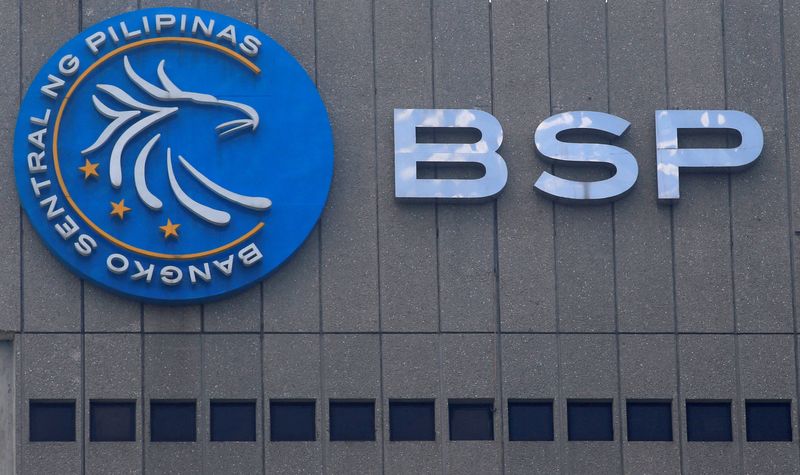Philippine central bank to back wealth fund after raising transparency concerns
2022.12.15 04:52
[ad_1]

© Reuters. FILE PHOTO: A logo of Bangko Sentral ng Pilipinas (Central Bank of the Philippines) is seen at their main building in Manila, Philippines March 23, 2016. REUTERS/Romeo Ranoco/File Photo/File Photo
MANILA (Reuters) – The Philippine central bank on Thursday said it was backing the creation of a sovereign wealth fund being pushed by President Ferdinand Marcos Jr, after having earlier raised concerns about transparency over its governance.
“Given that our concerns in the central bank have been completely addressed and the criticism of inclusion of the pension fund has been addressed as well, I support the passage of the bill,” Bangko Sentral ng Pilipinas (BSP) Governor Felipe Medalla said, adding the fund could be used to attract foreign investment.
Congressman Joey Salceda, one of the authors of the bill, said in a statement the “enhanced version” contained enough safeguards, like mandatory review of contributions by the fund, to make it “one of the most transparent”.
The plans come as neighbours like Malaysia and Singapore and more recently Indonesia have established sovereign wealth funds, with mixed results. In Malaysia, a multi-billion dollar graft scandal engulfed the 1Malaysia Development Berhad (1MDB) fund.
The legislative proposal was revised to exclude state pension funds as a source of funding, and approved by the lower house on second reading on Thursday. President Marcos has called for the measure’s “immediate enactment,” and it could pass a third reading before congress adjourns this week.
But enacting it into law may take some time, with the senate yet to file a required counterpart measure.
BSP’s Medalla repeated the central bank’s balance sheet was strong so it could afford to contribute to the fund through the dividends it regularly remits to the government.
He added he does not see the bill’s current version negatively affecting the central bank’s ability to fulfill its mandate of maintaining price stability.
Under the current version of the bill, two government financial institutions – Development Bank of the Philippines and Land Bank of the Philippines – would provide the fund’s initial capital.
[ad_2]
Source link








